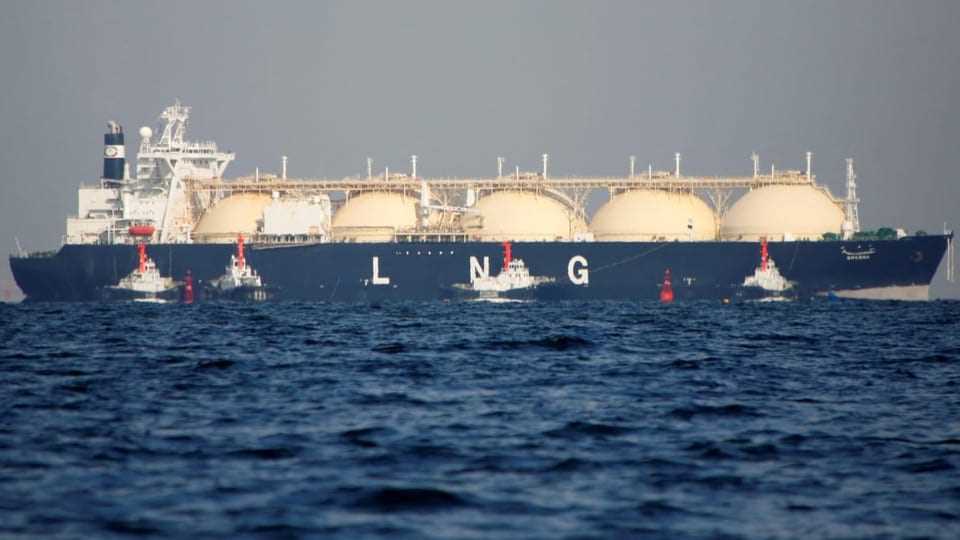contents
A halt to Russian gas deliveries as a result of the Ukraine crisis would also affect Switzerland. We show how difficult.
How dependent is Switzerland on gas supplies from Russia? In 2020, 15.1 percent of the energy consumed in Switzerland was obtained from natural gas (petroleum products 44 percent, electricity 27 percent, other 14 percent). Gas does not play the central role in Switzerland’s energy supply, but it does play an important role. Switzerland is therefore directly dependent on the European gas network functioning. And also indirectly: Switzerland has to import electricity in winter. Part of this import stream can come from gas-fired power plants.
47 percent of Switzerland’s direct gas imports come from Russia. This makes Russia by far Switzerland’s most important gas supplier. So if Russia were to stop or cut gas supplies to the West as a result of the Ukraine crisis, that would also cause problems in Switzerland.
How are Swiss private households feeling the effects of the Ukraine crisis? Around 20 percent of households in Switzerland heat with gas. The households obtain the gas from around 100 regional suppliers, who often also supply electricity and water to the households. Gas prices have already risen significantly in many places in recent months due to the effects of the Ukraine crisis, but there are big local differences: gas in the canton of Aargau costs up to 70 percent more than a year ago. Gas prices recently rose by around 30 percent in the Zurich region and by 10 percent in Geneva.
The reasons for the different price increases are likely to be the procurement situation and the supply contracts of the companies. Energy companies that now have to buy more gas in the short term pay significantly more than those with long-term contracts.
Does Switzerland have gas reserves to bridge a supply bottleneck? It is true that the natural gas importing companies must keep a compulsory stock, which should be sufficient for 4.5 months in the event of shortages. For practical reasons, however, the compulsory stock of natural gas is stored as extra light heating oil. Because there is no suitable storage system for liquid gas in Switzerland, construction and operation would be far too expensive according to the industry. In addition, many industrial gas consumers can also operate their systems with heating oil in the event of a shortage. These plants are called secondary fuel plants. However, there tends to be fewer and fewer of them.
Legend:
Natural gas is stored in such ball storage tanks to compensate for the daily requirement.
key stone
Does a gas bottleneck affect the power supply in Switzerland? The Russian troop deployment on the border with Ukraine, a possible Russian invasion and the pending sanctions against Russia and possible countermeasures have caused gas prices to rise sharply. As a result, electricity prices have also risen sharply. This in turn caused liquidity problems for electricity companies such as the Swiss Alpiq shortly before the end of the year. However, short-term price increases are not noticeable for private electricity consumers, as fixed prices apply in this country.
However, if Russian gas is no longer delivered to Europe, this could lead to problems with electricity imports. Other countries that produce part of their electricity with gas would probably export less electricity. However, experts still consider a blackout in Switzerland to be very unrealistic. For example, the federal government would also have the option of ordering that industrial plants have to be throttled in order to avoid a blackout.
Are there alternatives to gas from Russia? Today, natural gas can no longer simply be delivered via pipelines. In liquefied form, it is also transported by ship in large quantities and over long distances. Theoretically, Europe can therefore increasingly switch to suppliers other than Russia. Qatar, for example, is a leading exporter of liquefied gas. According to American government officials, negotiations with other states are also under way. Experts doubt, however, that larger capacities could be found on the market in the short term.

Legend:
LPG tankers are an alternative to transporting gas through pipelines.
Reuters
So gas from Russia remains important for Europe and Switzerland. But the income from gas deliveries is also crucial for Russia, which speaks against a delivery stop. And for Ukraine, the pipeline from Russia to Western Europe remains an important geopolitical pawn – at least until the Nordstar 2 pipeline, which bypasses Ukraine, becomes operational.
